
In episode 275, Kestrel welcomes Liz Ricketts (the cofounder and Director of The Or Foundation), alongside Sammy Oteng (a fashion designer, researcher, and the Community Design Lab Manager at The Or Foundation), to the show. A nonprofit based in the USA and Ghana, The Or Foundation’s primary goal is to catalyze what they call a justice-led circular economy.
“What’s so unfair about what fast fashion has done is that it’s created a situation where every single garment that’s created, whether it was from me or from Sammy or if it’s upcycled or recycled — it’s still waste until proven otherwise, because we just have so much excess in circulation right now, and it’s just very unfair to anyone who’s trying to do the right thing.” -Liz
Extended Producer Responsibility (EPR)
Before we get into it, there’s one thing I want to contextualize. And it’s probably something you’ve heard about - maybe something you’ve even heard a lot about recently. That thing is – Extended Producer Responsibility or EPR.
EPR policy would ideally ensure that producers are required to assume the costs of collection, treating, and recycling of their end-of-life products. Basically, it puts the financial burden of the waste management on the actual brands to deal with their products after citizens are done with them.
In 2007, France was the first country to declare a legal framework for managing textile waste through EPR policy with the goal of holding textile producers responsible for the collection and recycling of end-of-use clothing, linen, and shoes. The EU also recently announced EPR schemes to help address textile waste from fast fashion.
However – France and the EU’s policies fail to compensate the communities where the majority of that waste ends up. So, the tax is supposed to go to waste management, but when a great deal of that textile waste ends up being exported to countries in Africa as a part of that so-called “waste management”, AND those tax funds stay within France or Europe, these policies are only continuing to perpetuate a long history of waste colonialism.
This is only a very brief overview – but it gives you a little context on EPR before we get deeper into it.
The Or Foundation x Shein Agreement To Create EPR Fund
There were shockwaves sent across the fashion industry, after an announcement at the Global Fashion Summit this year (2022). The Or Foundation unveiled their agreement with SHEIN to receive $15 million over three years, as the first grant recipient of SHEIN’s new Extended Producer Responsibility (EPR) Fund to help manage textile waste.
The commentary and discussions across social media and the web have been intense, with a lot of very emotionally-charged reactions from varying vantage points. Here’s just a glimpse of some of the feedback that has been shared –
-
Concerns about the way this is blatant greenwashing by SHEIN, considering that their ultra fast fashion business model is largely to blame for the waste being dumped in Ghana and other areas of the Global South
-
Concerns about how SHEIN will be able to use this partnership as a way to *look good* while continuing to perpetuate a savorist mindset
-
Concerns over the criticism of this partnership being directed at The Or Foundation instead of at SHEIN
-
Concerns about what this showcases with regard to the nonprofit industrial complex
-
Concerns about the apparent need for wealth redistribution, but the question of when and why the origin of those funds should matter
-
Concerns over when and how SHEIN will address the root causes of its impact, instead of simply throwing cash at the problem, which some have identified as only offering a bandaid solution
And so many more. In this week’s conversation, I had the privilege to speak with the folks at The Or Foundation to get their take on it all. And more importantly, to hear some of the responses of the community in Kantamanto, and how this money will be and already is being used.
Quotes & links from the conversation:
-
Watch video celebrating Kantamanto's contribution to the "circular economy"
-
“The fashion industry is not only linear in terms of material flow, it’s also linear in terms of power dynamics and wealth — where you have countries in the Global North using the Global South as a waste management system, and folks in the Global South and people that we work with in Kantamanto doing the actual work of circularity in terms of reuse and repair and upcycling, but not having any of the language that is sanctioned in the Global North to describe what they do. And so, there’s this big disconnect between rhetoric and impact.” -Liz (18:18)
-
“Kantamanto has two truths — Kantamanto makes visible fashion’s waste crisis but it’s not the cause of the waste crisis, and Kantamanto itself is the largest reuse and upcycling economy in the world.” -Liz (20:00)
-
“If you think about the work that is being done here and the discussions that are going on around these topics within the fashion space in the Global North, there is such a huge disconnect — it almost seems like there is more interest in talking about all of these topics than actually doing the work.” -Sammy (22:40)
-
“The work that we are doing here is not about the Global North. We are not doing all this work in our community to give back to the Global North.” -Sammy (28:55)
-
“I don’t want to dismiss the complexity and some of the reactions that I think are very important; I think it’s provoked some productive dialogue in the Global North. But for us, it’s very simple — it’s not about me, it’s not about our organization. It’s about the community that we are accountable to which is Kantamanto, and they have been trusting us since 2016 to deliver tangible change and frankly, we’ve failed them for a long time. It’s been really hard to find money to do the things that need to be done, and every single week — retailers, tailors, girls working as kayayai have asked us if anyone has acknoeweldged them and if any of the brands has stepped up to take responsibility, or if anyone from the Global North has stepped up to take responsibility. I have to be very honest that for me, it’s a big relief to finally be able to say “yes, someone has.” We’ve been calling on this — a lot of people in our community, folks in the Global North have joined us in calling for brands to pay for the waste that ends up here, for the waste that we are processing ourselves. And I understand that maybe this is not how people imagined that looking, but for us again, it’s very simple — it’s not about Shein, it’s not about us, it’s about the fact that finally we can have the resources that the community has been calling for.” -Liz (40:38)
-
“The conversation here is very different when you talk to the retailers — they are not concerned about what brand is bringing the money or who is the CEO, they don’t care about that. They just believe that white people or people from the Global North should take some responsibility for the problem that has been caused here. And for them, that is the one thing they appreciated — knowing that after all this long while of waiting … people in the Global North have actually taken responsibility that their stuff has may be ending up here and causing problems.” -Sammy (42:22)
-
“For me, that should have been the focus of all of these shock and waves or whatever going around the fashion space. I think that should have been the real question, the real interest — finding out what it meant to the community.” -Sammy (45:37)
-
“I don’t think that our community, the sustainability community, really talks about the lack of resources, but it’s very real. For instance, I’ve gone to brands that are considered very “sustainable”, asking them to support our kayayei programs — which it only takes a $1,000 dollars per girl to transition them out of this job that literally is killing them into a dignified career. And people have responded by saying “oh that’s very sad, but we would like to fund a documentary” because people want to have things that they can put their logo on or that they can sponsor.” -Liz (47:01)
-
Article on The Or Foundation’s work with kayayei (written by Liz)
-
Watch video on The Or Foundation’s Chiropractic Research and Treatment Program
-
Recent IG Live where Sammy and Chloe talk about how challenging it is for Ghanaian citizens to travel outside of Ghana while millions of garments flood into Accra from outside every week
-
Watch video tour of the No More Fast Fashion Lab
-
Waste Landscape Report by The Or Foundation
-
The Or Foundation’s 2021 Annual Report
-
Follow The Or Foundation on Instagram >
-
TAKEAWAY: look into the EPR policies in your local area, and figure out if the policies that are being considered are globally accountable — if waste is going to be exported as part of that policy, is money going to be able to flow with it? If not, fight for this.
More Episodes
Motherhood, entrepreneurship & sustainability: navigating impossible expectations while caring for yourself and others, and building things that center care
 2024-10-29
2024-10-29
Kestrel on vulnerability, personal health, podcast evolutions & a question to sustainable fashion folks: are you OK?
 2024-10-15
2024-10-15
Nelson ZêPequéno of Black Men With Gardens and Cayetano Talavera of Hecho By Caye on why fashion needs to listen to nature’s lessons on slowing down, tuning in, practicing patience & cultivating creativity to better center sustainability
 2024-07-02
2024-07-02
Teju Adisa-Farrar of Black Fiber & Textile Network and Author Layla K. Feghali on geography and what our relationship to place can teach us about *sustainability*
 2024-06-11
2024-06-11
Wafa Ghnaim of Tatreez and Tea & Dr. Tanveer Ahmed of Central Saint Martins on preserving culture, decolonial frameworks, and how intersectional reform can be a pathway toward sustainable fashion futures
 2024-04-23
2024-04-23
Sustainable fashion podcasters unite — Emily Stochl of Pre-Loved Podcast & Stella Hertantyo of Conscious Style Podcast help us reflect on 11 years since Rana Plaza, celebrating collective movements & ways to focus our continued advocacy
 2024-04-09
2024-04-09
Upcycling artists Francisco Alcazar & Ella Wiznia of Series NY are redefining sustainable fashion while reimagining craft & challenging the gender binary
 2024-03-26
2024-03-26
How gender plays into the devaluing of knowledge and its links to sustainable fashion & wellness with Megan Schnitker of Lakota Made and Niha Elety of Tega Collective
 2024-03-12
2024-03-12
Celebrating the cultural tradition, past and present, of Palestinian Tatreez with artists / educators Lina Barkawi and Eman Toom & why sustainable fashion must include cultural sustainability
 2024-02-27
2024-02-27
Intergenerational knowledge & sustainable fashion — how clothing is more than just aesthetics; it’s about the upholding of cultural practices and the amplifying of knowledge & traditions
 2024-02-13
2024-02-13
Vintage stylist Beth Jones & Dounia Wone of Vestiaire Collective on whether fast fashion brands fit into the resale experience
 2024-01-30
2024-01-30
Why self work is integral to advocating for transformation in fashion & why we must deeply question our personal values to truly get active in creating a more sustainable fashion future
 2024-01-16
2024-01-16
Denali Jöel on fashion as an art praxis rooted in Afro-Indigenous philosophies, interrogating the emphasis placed on the *industry* & reminding us of the possibility of creating new ecosystems
 2023-11-07
2023-11-07
Julius Tillery aka the "Puff Daddy Of Cotton" on the need to remix both the perception of the cotton industry and the business model
 2023-10-30
2023-10-30
Cassandra Pintro of Consumption Project on welcoming her community to challenge their buying habits and question what is *enough*
 2023-10-24
2023-10-24
Jeanell English on navigating the pressure to project a certain image in business & across climate spaces and balancing the worlds of activists & execs as a leader in impact
 2023-10-17
2023-10-17
Muchaneta Ten Napel on utilizing tech as a tool to change how fashion does business, not a crutch that will *save us all* & preparing for the fashion policy changes that are on the horizon
 2023-10-10
2023-10-10
*Breaking It Down* with Rachel Arthur, lead author of The Sustainable Fashion Communication Playbook, an actionable guide co-published by UNEP and UN Climate Change
 2023-09-26
2023-09-26
Tameka Peoples of Seed2Shirt on rebuilding equitable + just cotton systems & fostering the reclamation of cotton acreage for Black farmers
 2023-09-19
2023-09-19
Lisa Diegel, Global Sustainability Director, on Faherty's Native Initiatives, what mutually beneficial relationships can look like in practice, and the nuanced ways brands must take responsibility for the products they put out into the world
 2023-09-12
2023-09-12
Create your
podcast in
minutes
- Full-featured podcast site
- Unlimited storage and bandwidth
- Comprehensive podcast stats
- Distribute to Apple Podcasts, Spotify, and more
- Make money with your podcast
It is Free
You may also like
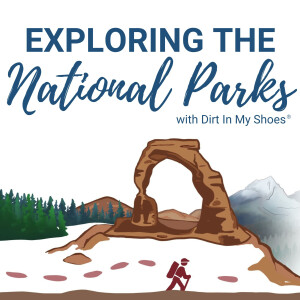
Exploring the National Parks

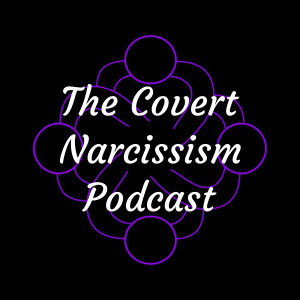
The Covert Narcissism Podcast


Greece Travel Secrets Podcast

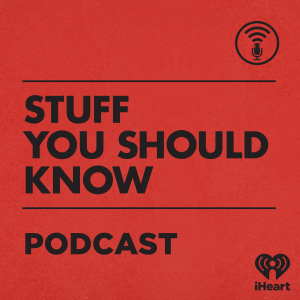
Stuff You Should Know

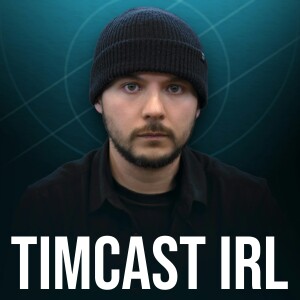
Timcast IRL


- Privacy Policy
- Cookie Policy
- Terms of Use
- Consent Preferences
- Copyright © 2015-2024 Podbean.com

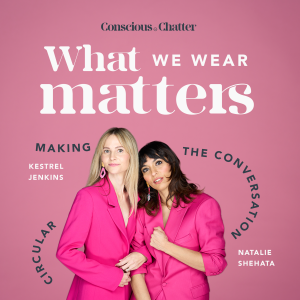

 iOS
iOS Android
Android